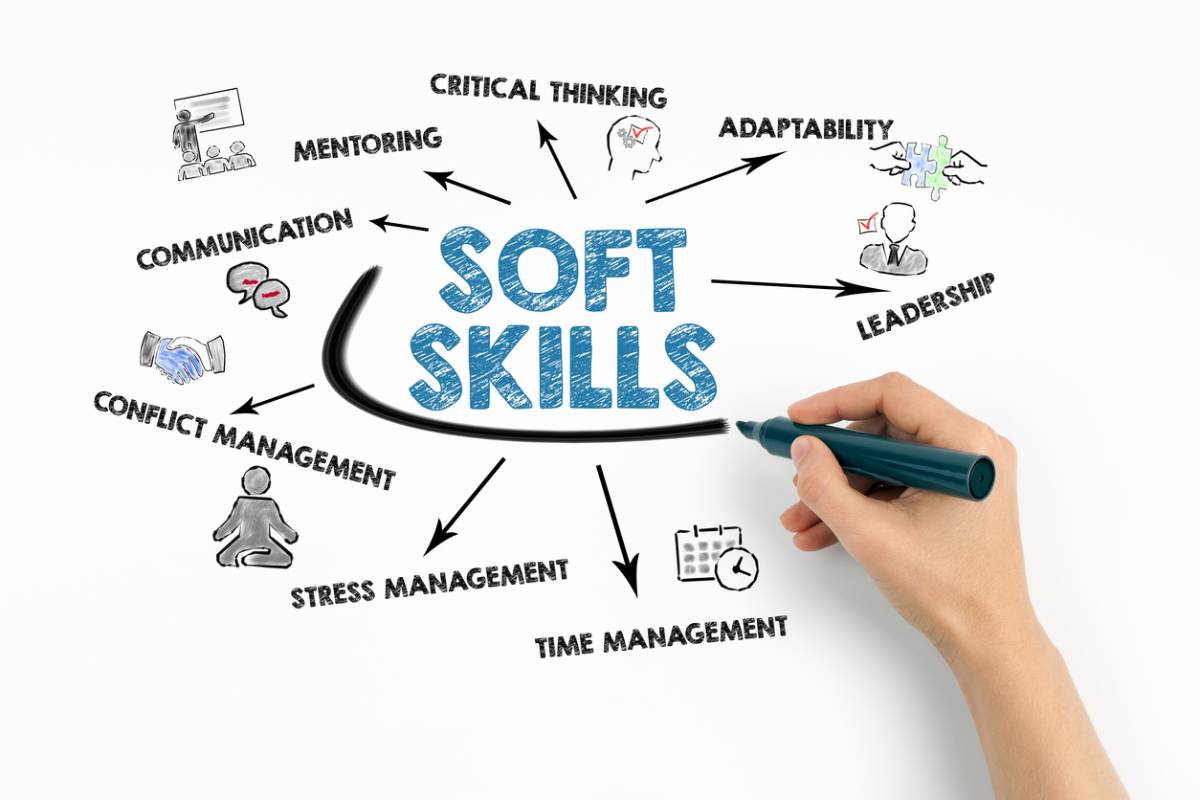
The Best Soft Skills for Career Success and How to Develop Them
In today’s fast-changing job market, just having technical skills isn’t enough for success. Employers value soft skills more and more. These skills are key for good communication, teamwork, and solving problems. By 2025, the need for these skills is set to increase, making them essential for career growth. In this guide, we will look at the top soft skills for 2025. We’ll discuss why they matter and share practical tips on how to develop them. No matter your experience level, improving your soft skills can greatly impact your career.
Why It Matters
The Growing Importance of Soft Skills
Soft skills are non-technical skills that relate to how you work and interact with others. They include abilities like communication, teamwork, adaptability, problem-solving, and emotional intelligence. A LinkedIn report shows that 92% of hiring managers believe soft skills are as important or even more important than hard skills.
Real-Life Applications and Data-Backed Insights
- Communication Skills: Effective communication is the cornerstone of any successful organisation. It facilitates clear understanding, reduces conflict, and enhances collaboration. A study from the National Association of Colleges and Employers found that 73.4% of employers want candidates with good communication skills.
- Teamwork and Collaboration: Working well with others is key in today’s connected workplaces. A Deloitte report shows that organisations with collaborative cultures are twice as likely to perform well.
- Adaptability and Problem-Solving: In today’s fast-changing tech world, being adaptable is essential. Employees who can navigate change and solve complex problems are invaluable to employers.
Step-by-Step Guide

How to Improve Communication Skills
Improving communication skills is a continuous process that involves self-awareness, practice, and feedback. Here are some detailed steps to enhance your communication abilities:
1. Active Listening
Active listening is the foundation of effective communication. It means listening closely to the speaker, grasping their message, and replying carefully.
- Practice Mindful Listening: Pay full attention to the speaker. Don’t interrupt or think about your response while they talk. Be mindful while listening.
- Ask Questions: If you’re unsure, ask for more details to understand better.
- Give Feedback: Summarise what the speaker said. This helps ensure clarity and understanding.
2. Non-verbal communication
Non-verbal cues such as body language, eye contact, and facial expressions matter in communication.
- Maintain Eye Contact: It shows confidence and helps build trust.
- Be Aware of Your Body Language: Keep your posture open and welcoming. Don’t cross your arms or look disinterested.
- Use Facial Expressions: They can convey empathy, enthusiasm, and understanding.
3. Clarity and Conciseness
Being clear and concise helps prevent misunderstandings and keeps the conversation focused.
- Organise Your Thoughts: Before speaking, organise your thoughts to convey your message effectively.
- Use Simple Language: Avoid jargon and complex words that might confuse the listener.
- Stay on Topic: Keep your communication focused on the subject at hand.
Best Interpersonal Skills for Jobs
Interpersonal skills are essential for building and maintaining positive relationships at work. Here are some of the most valuable interpersonal skills and how to develop them:
1. Empathy
Empathy is the ability to understand and share the feelings of others. It fosters strong relationships and enhances teamwork.
- Practice Active Listening: As mentioned earlier, active listening helps you understand others’ perspectives.
- See Things from Others’ Views: Look at situations through others’ eyes to grasp their feelings better.
- Show Compassion: Respond with kindness and consideration to others’ needs and emotions.
2. Conflict Resolution
Handling conflicts effectively is crucial for maintaining a harmonious work environment.
- Stay calm and collected: Control your emotions in conflicts, and think clearly about the situation.
- Address Issues Directly: Tackle conflicts head-on rather than avoiding them.
- Seek Win-Win Solutions: Aim for resolutions that satisfy all parties involved.
3. Teamwork
Working well with others is essential in almost every job.
- Be Open to Feedback: Take constructive criticism and use it to enhance your performance.
- Collaborate Effectively: Share ideas and work together to achieve common goals.
- Respect Diversity: Embrace different perspectives and backgrounds.
Additional Expert Tips & Common Mistakes to Avoid
Best Practices Beyond the Basics
- Keep Learning: Look for chances to improve your soft skills. Join workshops, take courses, and read regularly.
- Seek Feedback: Ask your colleagues and supervisors for their thoughts on your communication and people skills.
- Practice Self-Reflection: Regularly assess your interactions and identify areas for improvement.
Common Mistakes and Misconceptions
- Overconfidence can hold back your growth: If you think your soft skills don’t need improvement, you’re mistaken. Always remain open to learning.
- Ignoring Non-Verbal Cues: Focusing solely on verbal communication can lead to misunderstandings.
- Avoiding Conflict: Ignoring conflicts instead of addressing them can lead to unresolved issues.
Advanced Insights / Expert Recommendations

Unique Industry Perspectives
- Tailoring Skills to Your Industry: Different industries may require specific soft skills. For example:
- Customer-facing roles prioritise communication and empathy.
- Tech roles focus on problem-solving and adaptability.
- Leveraging Technology: Use technology to enhance your soft skills. For example, virtual reality (VR) can create real-life situations. This helps people practise communication and resolve conflicts.
Lesser-Known Insights
- Emotional Intelligence (EI): EI is now seen as a key part of soft skills. It involves self-awareness, self-regulation, motivation, empathy, and social skills.
- Cultural Competence: In a global workforce, knowing and respecting cultural differences is key to good communication and teamwork.
Top Soft Skills for Career Success in 2025
In conclusion, building strong soft skills is key to career success, especially as we near 2025. Work on your communication, interpersonal skills, and adaptability. This can help you build stronger professional relationships and improve your job prospects.
Remember, the journey to mastering soft skills is ongoing, requiring dedication and practice. Start today by checking your skills, asking for feedback, and promising to keep improving. As you start this journey, these skills will boost your career and improve your personal life.
What soft skill will you focus on developing next?